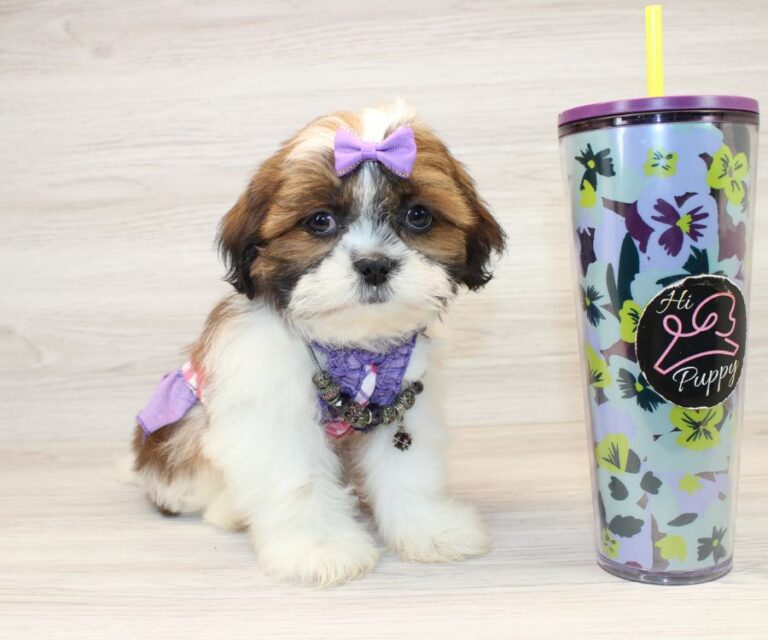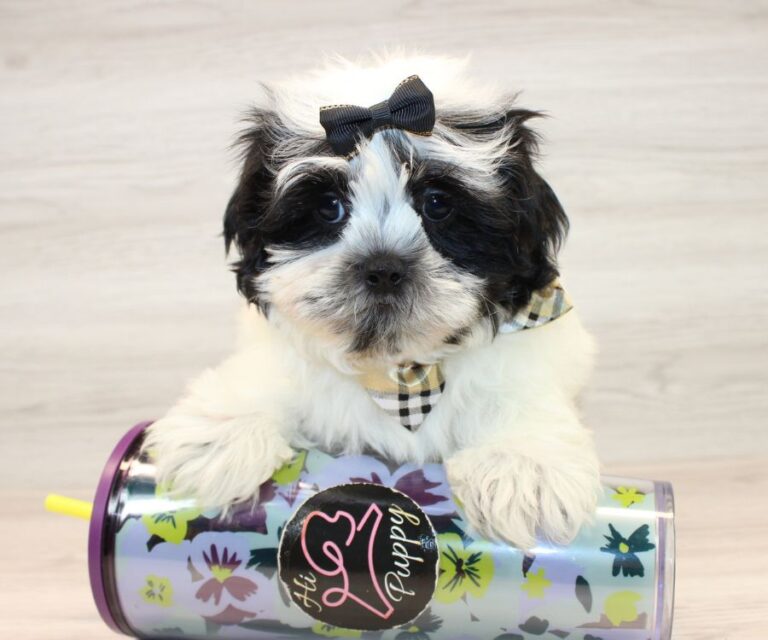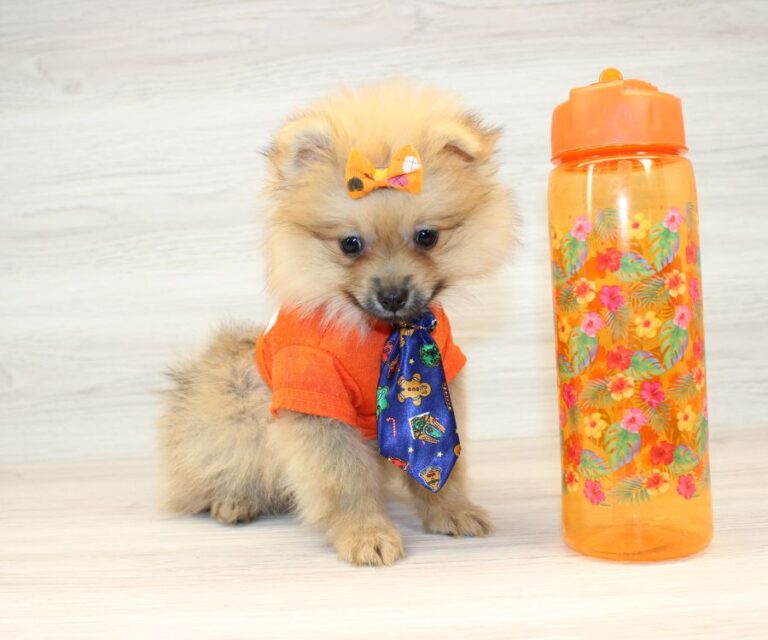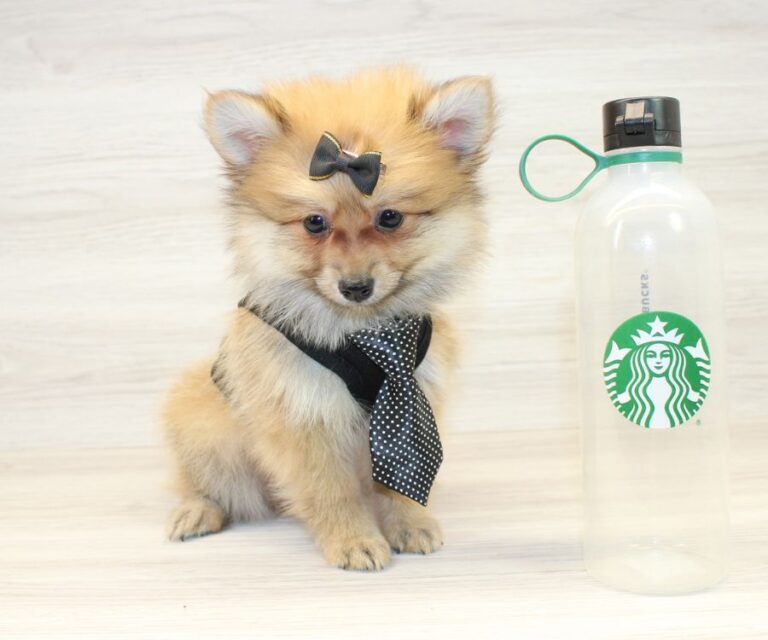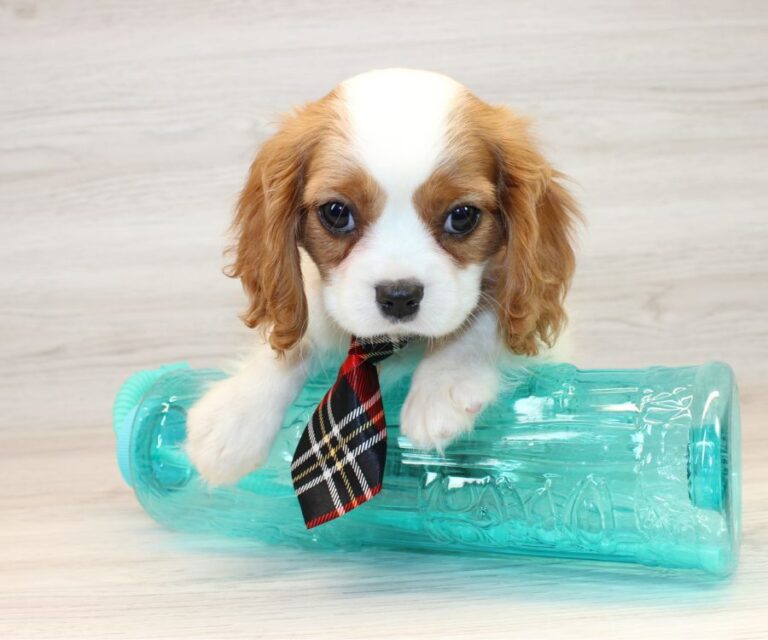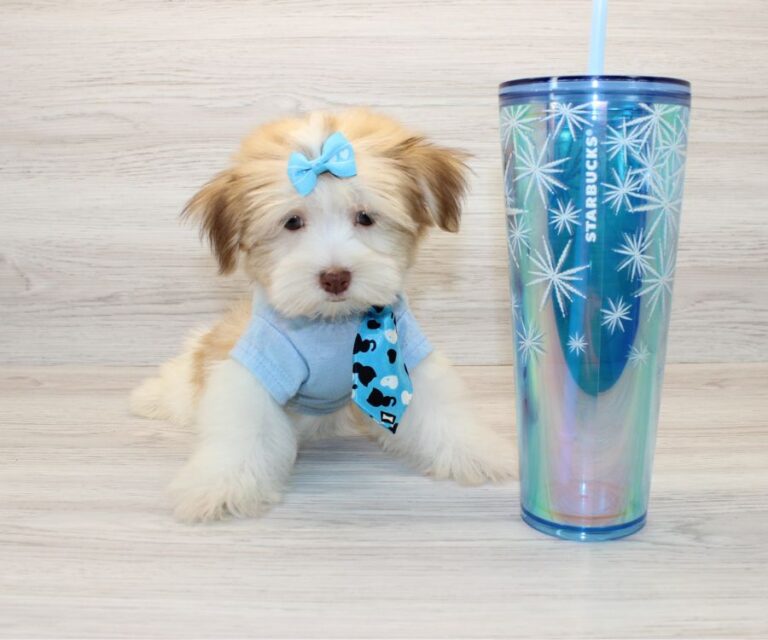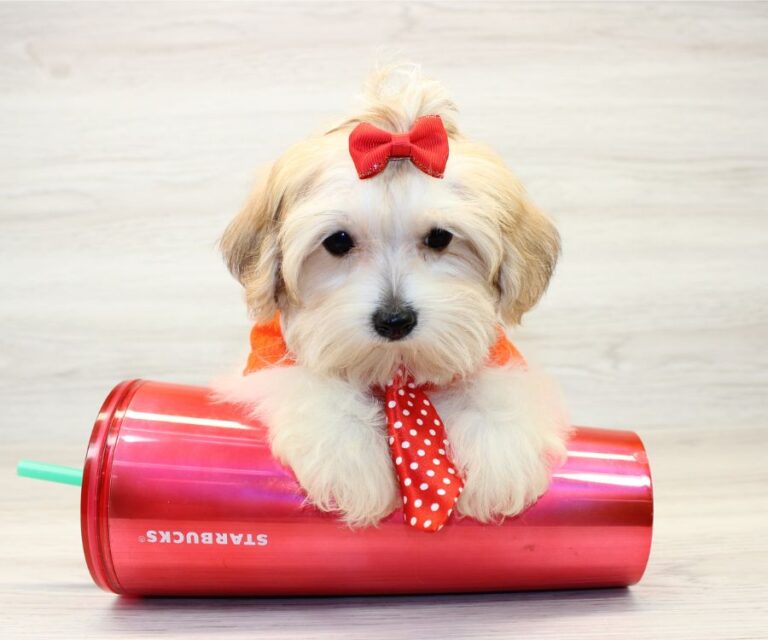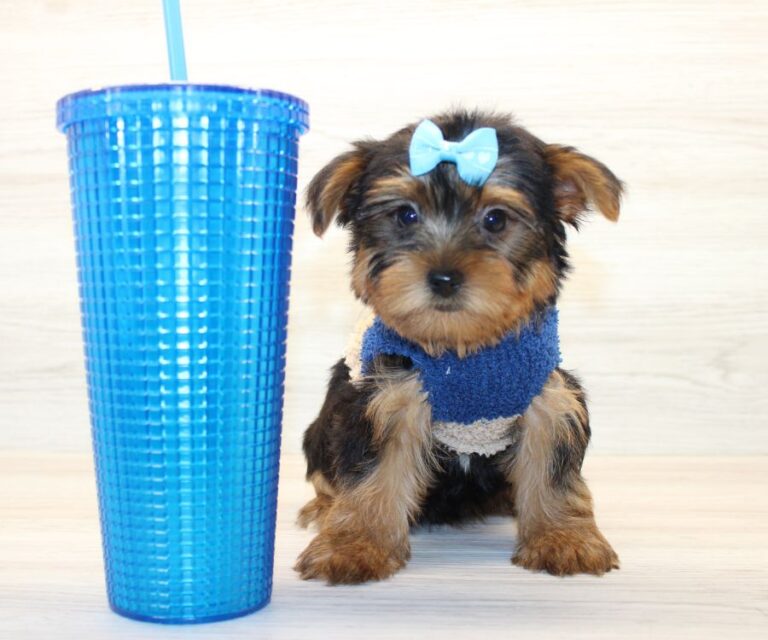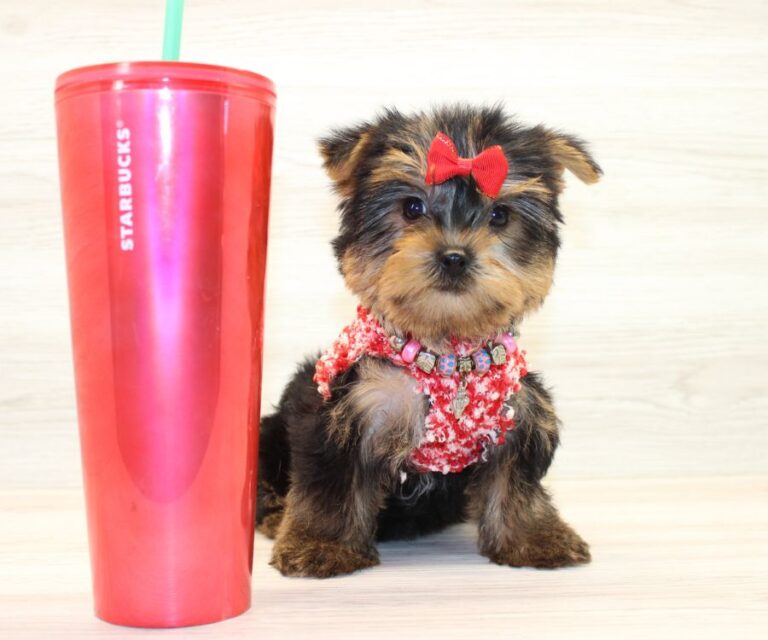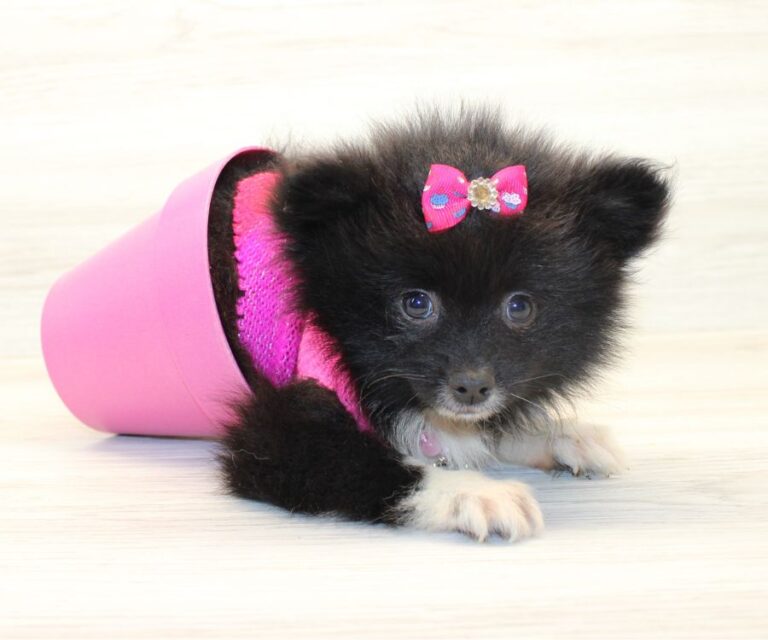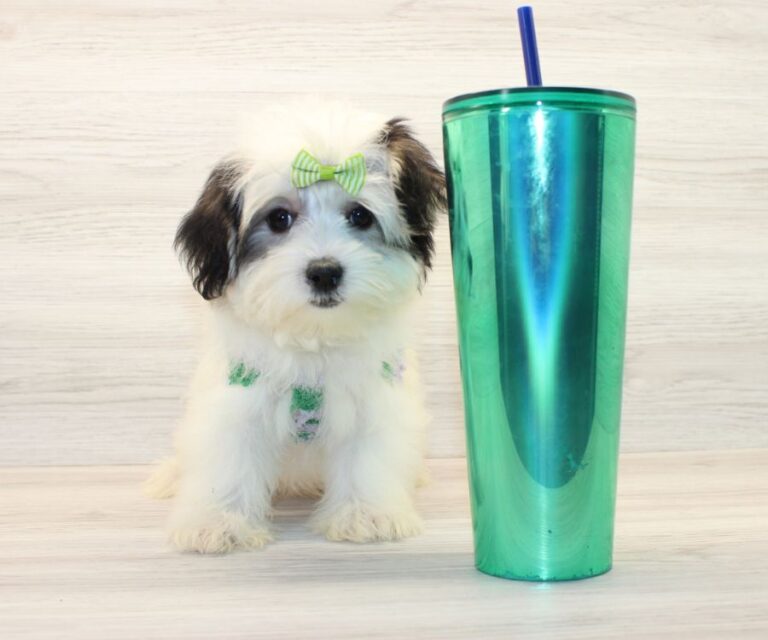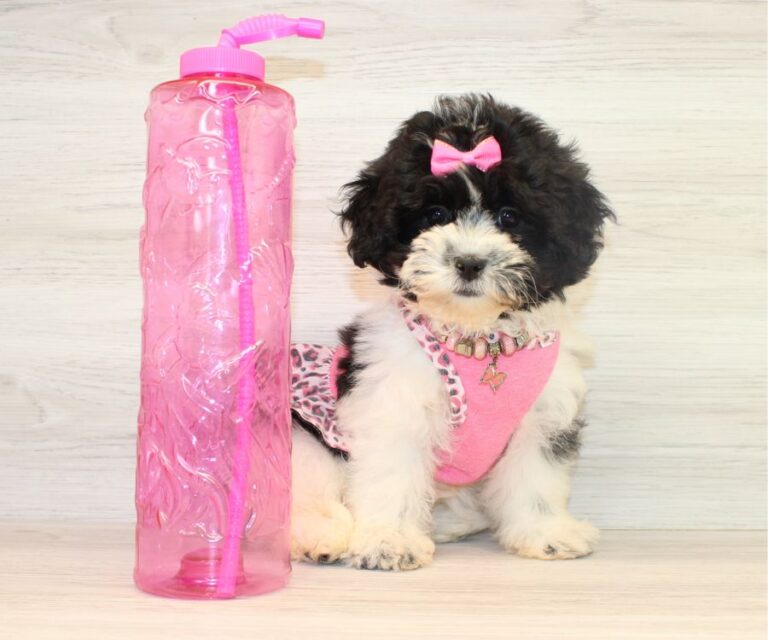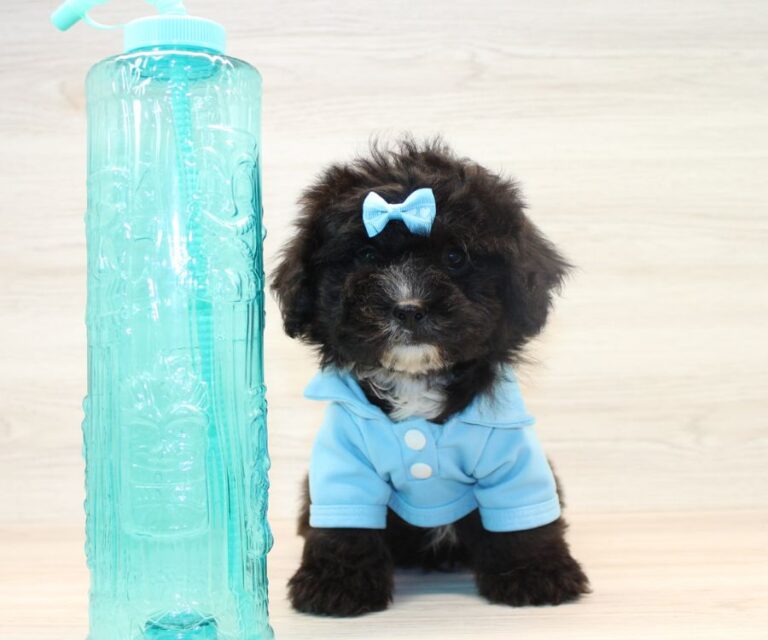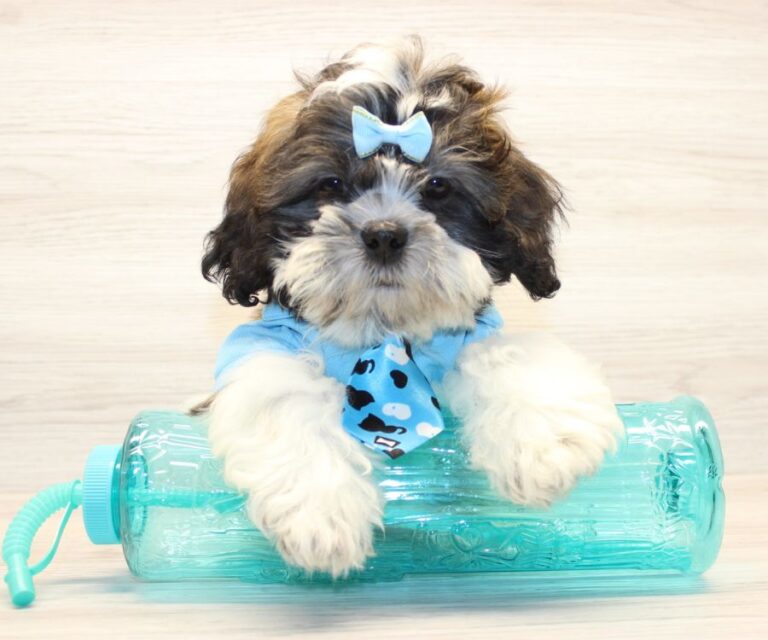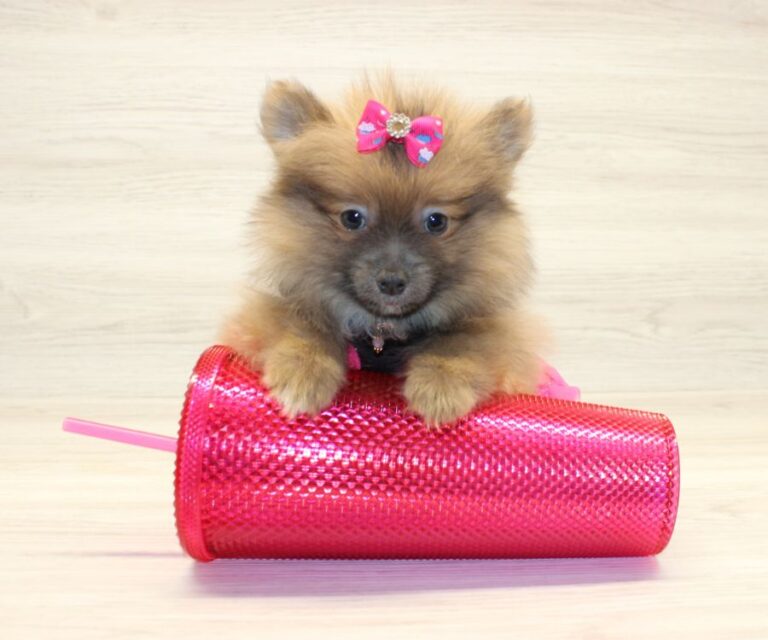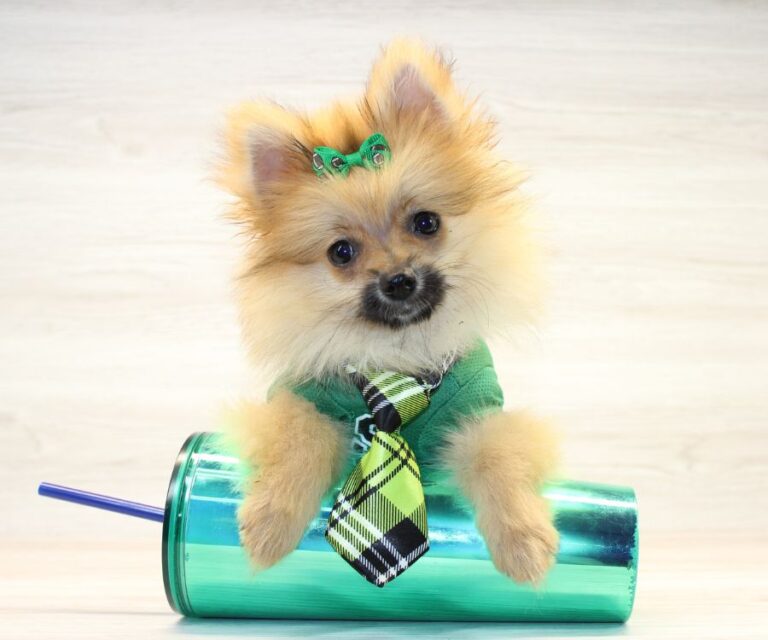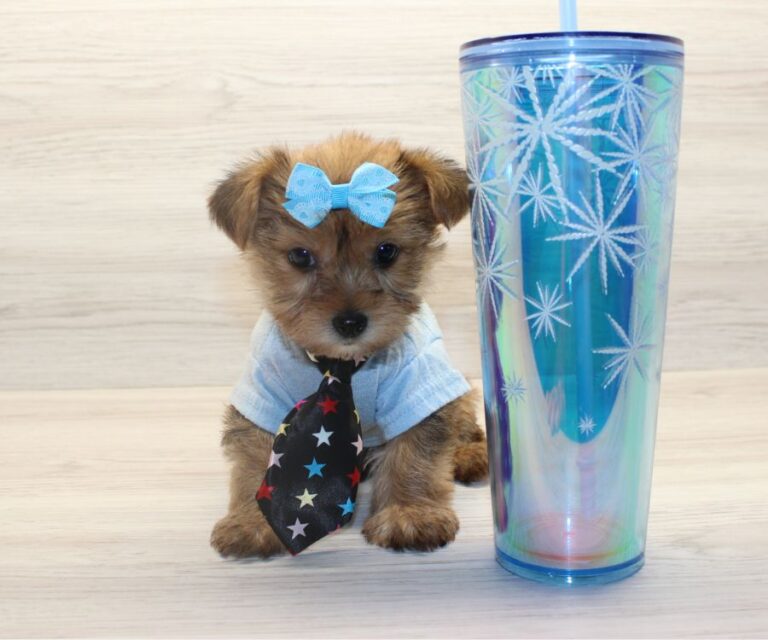If you’re seeking toy and teacup puppies in Olean, NY, Puppyheaven.com provides a selection of breeds well-suited for different living conditions. Available breeds include Chihuahuas, known for their adaptability to urban living; Pomeranians, recognized for their fluffy coats and sociable nature; and Yorkshire Terriers, appreciated for their elegance and cruciality. These puppies not only adapt well to various environments but are also affectionate and loyal. They require specialized care, including strict feeding schedules and frequent health checkups. Obtaining your puppy from local breeders at Puppyheaven ensures they meet high health and sociability standards. Consider further exploring the specific needs and benefits of these delightful companions.
Why Choose Toy & Teacup Puppies
Choosing toy and teacup puppies offers the advantage of a smaller, more manageable pet that fits easily into various living environments. These diminutive dogs provide size advantages that are significant if you’re residing in an apartment or a home with limited space. Their small stature means they require less room for both living and playing, which simplifies the challenges of pet management in confined areas.
Additionally, the temperament traits of toy and teacup puppies often include being affectionate, loyal, and adaptable. They typically possess a calm demeanor that makes them excellent companions for individuals or families seeking a vital pet option. Their manageable size also facilitates easier handling, reducing the risk of injury to both the pet and the owner during daily activities such as grooming, feeding, and exercising.
You’ll find that these smaller breeds are conducive to a lifestyle oriented towards serving and caring. Their needs for companionship align well with individuals who’ve a nurturing disposition and are attentive to the needs of their pets. This compatibility is important in establishing a harmonious living situation and ensuring the well-being of your tiny canine friend.
Available Breeds in Olean
In Olean, NY, several breeds of toy and teacup puppies are available for sale, including Chihuahuas, Pomeranians, and Yorkshire Terriers. These breeds have been selected due to their increasing popularity among residents and the expertise of local breeders in raising small-size dogs.
Chihuahuas, known for their compact size and vivacious personality, are particularly favored for urban living conditions. Local breeders emphasize their adaptability and ease of care, making them a top choice for individuals seeking a small, loyal companion.
Pomeranians, with their fluffy coats and alert demeanor, are also highly sought after. Breeders in the area focus on their social nature, ensuring these puppies are well-socialized and ready for family life.
Yorkshire Terriers, or Yorkies, are celebrated for their elegance and spirited character. Breeders in Olean dedicate significant effort to maintain the breed’s standards and health. These dogs are known for their long, silky coats and energetic spirit, requiring careful grooming, which is often highlighted by breeders to prospective owners.
Local breeders in Olean are committed to the well-being of these breeds, ensuring they meet high standards of health and sociability before they find their forever homes.
Understanding Teacup Puppy Needs
As you consider adopting a teacup puppy, it’s important to recognize their special dietary needs, which are essential for their development and overall health.
You’ll also need to schedule frequent health checkups to monitor their growth and prevent common health issues.
These small breeds require careful attention to thrive, so be prepared for the commitment.
Special Dietary Requirements
Teacup puppies require specially formulated diets to support their rapid growth and unique health needs. You’ll need to adhere to strict feeding schedules to make sure they receive the necessary nutrients in small, manageable portions that their tiny stomachs can handle. It’s important not to overfeed, as their small size predisposes them to obesity, which can exacerbate health issues.
Additionally, allergy management is vital in their care. These pups can be sensitive to certain ingredients typically found in generic dog foods. Opt for hypoallergenic formulas designed to prevent adverse reactions. Always consult with a vet to tailor a diet that suits your puppy’s specific needs, ensuring they grow up healthy and strong without unnecessary complications.
Frequent Health Checkups
You’ll need to schedule regular health checkups for your teacup puppy to monitor their development and catch any potential health issues early. Here are important steps to guarantee effective care:
Plan Bi-Annual Visits: Schedule appointments every six months. This regularity helps in early detection of conditions peculiar to teacup breeds.
Budget for Veterinary Costs: Allocate funds specifically for veterinary expenses. These costs include vaccinations, routine exams, and any unforeseen health issues.
Record Keeping: Maintain a detailed health record. This assists your vet in managing your puppy’s health more effectively.
Prioritize Preventive Care: Invest in preventive measures like vaccines and parasite control to avoid larger health issues and mitigate long-term veterinary costs.
Health Considerations for Small Dogs
You should be aware that toy and teacup puppies often face specific health challenges, including common genetic disorders.
It’s important to understand their unique diet and nutrition needs to maintain their health and vitality.
These considerations are essential in ensuring that your small dog leads a long, healthy life.
Common Genetic Disorders
While toy and teacup puppies are often sought after for their charming size, they’re also prone to specific genetic disorders that potential owners should consider. Genetic testing and breeder responsibility are vital in identifying and managing these conditions.
Common genetic disorders include:
Patellar Luxation: A condition where the kneecap dislocates, causing pain and mobility issues.
Hypoglycemia: Especially prevalent in smaller breeds, this involves low blood sugar levels which can lead to weakness and seizures.
Hydrocephalus: Commonly referred to as ‘water on the brain,’ leading to neurological problems.
Heart Defects: Such as patent ductus arteriosus, which can lead to heart failure if untreated.
It’s essential to work with reputable breeders who test for these genetic conditions.
Diet and Nutrition Needs
Proper diet and nutrition are essential for maintaining the health of toy and teacup puppies, whose small size demands specific caloric and nutrient needs. You must follow precise feeding schedules to make sure they receive adequate nutrition throughout the day without overfeeding, which can lead to obesity and associated health issues. It’s vital to introduce a balanced diet that supports their developmental and energy requirements.
Additionally, allergy identification plays a significant role in their well-being. Be vigilant for signs of food allergies, which can manifest as skin irritations or gastrointestinal disturbances. Consult with a veterinarian to tailor a diet plan that suits your puppy’s unique needs, and adjust as they grow and their dietary needs evolve.
Training Tips for Tiny Breeds
Training tiny breeds often requires a gentle touch and consistent techniques to guarantee effective learning. When you’re training your toy or teacup puppy, it’s crucial to focus on both potty challenges and behavioral consistency to make sure they grow into well-adjusted pets.
Here are four critical tips to guide you through the process:
Establish a Routine: Consistency is key in training, especially for potty training. Set regular intervals for feeding and potty breaks to help your puppy learn when and where it’s appropriate to go. This routine will minimize accidents and increase potty success.
Positive Reinforcement: Always use positive reinforcement when your puppy follows commands or behaves well. Treats, gentle praise, or a favorite toy can be effective rewards. Avoid harsh corrections as they can instill fear rather than learning.
Short Training Sessions: Keep training sessions short – 5 to 10 minutes is ideal. Tiny breeds can get tired or bored easily, so frequent, brief sessions are more effective than longer ones.
Patience with Progress: Don’t expect overnight success. Potty training and behavioral training take time, particularly with tiny breeds. Celebrate small victories and remain patient and persistent with your training efforts.
Socializing Your Toy Puppy
Introducing your toy puppy to various social situations early on is important for their development into a well-rounded adult dog. When you start socializing your puppy, aim for a balance between interactions with other dogs and people, and time spent in various environments.
Start with controlled settings like puppy playdates, which are ideal because they allow your toy puppy to interact with other dogs in a safe, structured environment. This exposes them to a variety of canine behaviors and helps them learn appropriate social cues.
Additionally, expose your puppy to quiet environments. These less stimulating settings can help your puppy learn to adapt to different levels of sensory input. This is essential for preventing the development of anxiety and fear. You can take your toy puppy to calm parks or quiet streets during less busy times of the day.
Nutritional Advice for Teacups
Since teacup puppies have unique dietary needs, it’s crucial that you select a diet that supports their rapid growth and prevents health issues. Here’s how you can guarantee their nutritional requirements are met:
High-Quality Protein Source: Seek out foods that list real meat as the first ingredient. Teacup puppies require protein-rich diets to develop muscles and support their high energy levels. Be mindful of ingredient allergies; some teacups may react negatively to certain proteins like chicken or beef.
Small, Frequent Meals: Due to their small stomachs, teacup puppies benefit from multiple small meals throughout the day. Establishing a consistent feeding schedule helps prevent hypoglycemia, a common issue in small breeds where blood sugar levels drop dangerously low.
Balanced Micronutrients: Make sure the food contains a balance of essential vitamins and minerals to support bone health and immune function. Calcium and phosphorus must be in the correct ratio to avoid growth abnormalities.
Avoid Harmful Ingredients: Steer clear of foods with fillers, artificial additives, and by-products. These can worsen ingredient allergies and don’t provide the nutritional value your teacup puppy needs.
Choosing the Right Veterinarian
Selecting the right veterinarian is essential for maintaining your teacup puppy’s health and well-being. As you look for a vet, it’s important to take into account their experience with smaller breeds, as teacup puppies have unique health needs. Inquire about the vet’s familiarity with the specific vulnerabilities and treatments required for these tiny pets.
When discussing potential vets, don’t shy away from asking about veterinary costs. It’s significant to find a clinic that offers transparent pricing and flexible payment options that accommodate your budget. This foresight helps you manage health care expenses without compromising on the quality of care your puppy receives.
Furthermore, make sure the clinic provides thorough emergency care services. Teacup puppies can face sudden health issues that require immediate attention. Check if the facility is equipped for such emergencies, including out-of-hours services, as this could be crucial to your puppy’s survival in a crisis.
Lastly, consider the vet’s communication style and commitment to client education. You’ll want someone who’s not only a skilled practitioner but also an informative guide through your pet’s health journey. This partnership is essential in fostering a nurturing environment for your new companion, ensuring they thrive under your care and attention.
Bringing Your Puppy Home
After selecting a veterinarian, the next step is preparing to bring your puppy home. This involves several important tasks to guarantee a safe and welcoming environment for your new pet. Here’s what you need to focus on:
Puppy Proofing: Begin by securing your home to make it a safe zone for your teacup or toy puppy. Remove any small objects that could be swallowed, conceal electrical cords, and block off areas that could be potentially risky.
Travel Preparations: Make sure you have a comfortable travel carrier. Line it with a soft blanket and bring a bottle of water to keep your puppy hydrated. The journey home should be as stress-free as possible to avoid any anxiety for your puppy.
Create a Dedicated Space: Set up a specific area in your home where your puppy can feel secure. Include a sleeping area, feeding station, and a selection of toys. This will help your puppy adjust to its new environment more quickly.
Establish a Routine: From the first day, introduce a consistent schedule for feeding, potty breaks, and playtime. This routine will help your puppy settle in and start to understand the household rhythms.
Conclusion
When you bring your new toy or teacup puppy home to Olean, make sure you’re prepared for their unique needs. Choose a knowledgeable vet, follow specialized nutritional guidelines, and be diligent in training and socializing your tiny companion.
These breeds require careful attention but provide immense joy. By understanding and meeting their specific health, dietary, and emotional requirements, you’ll guarantee a long, happy life together.
Remember, the right start makes all the difference for your petite friend.
